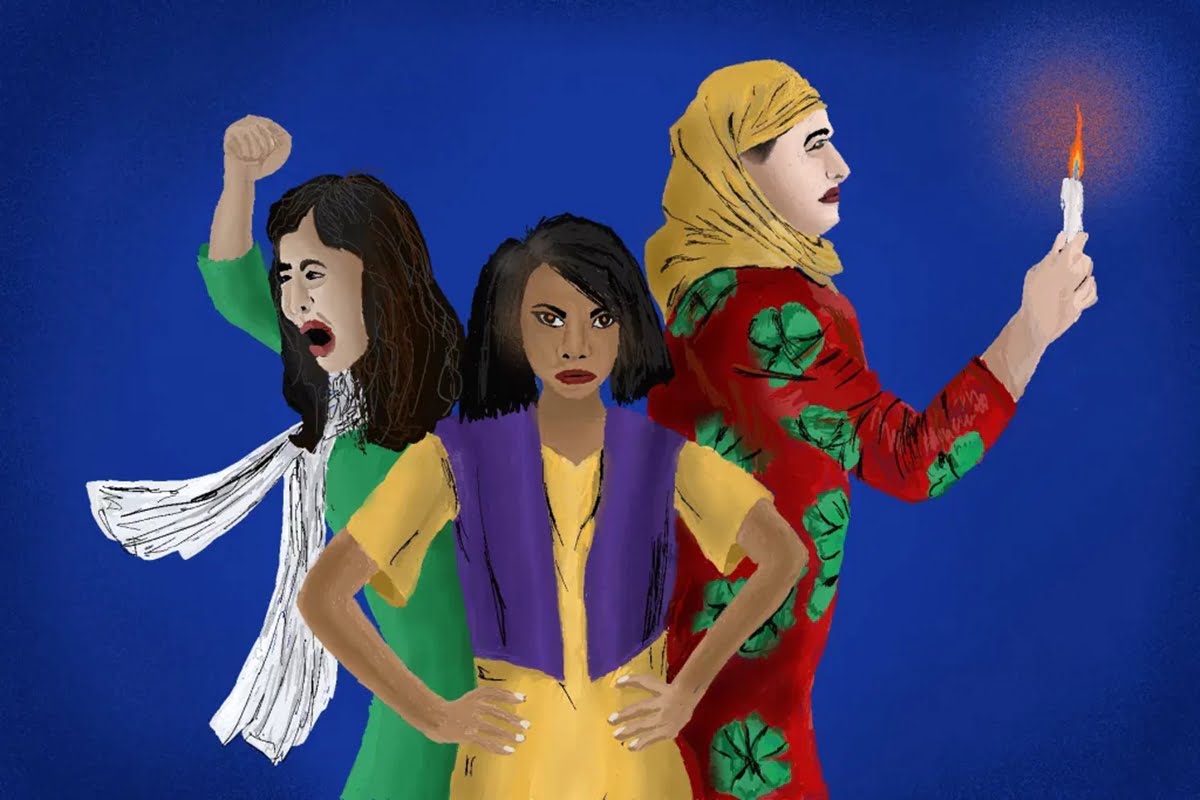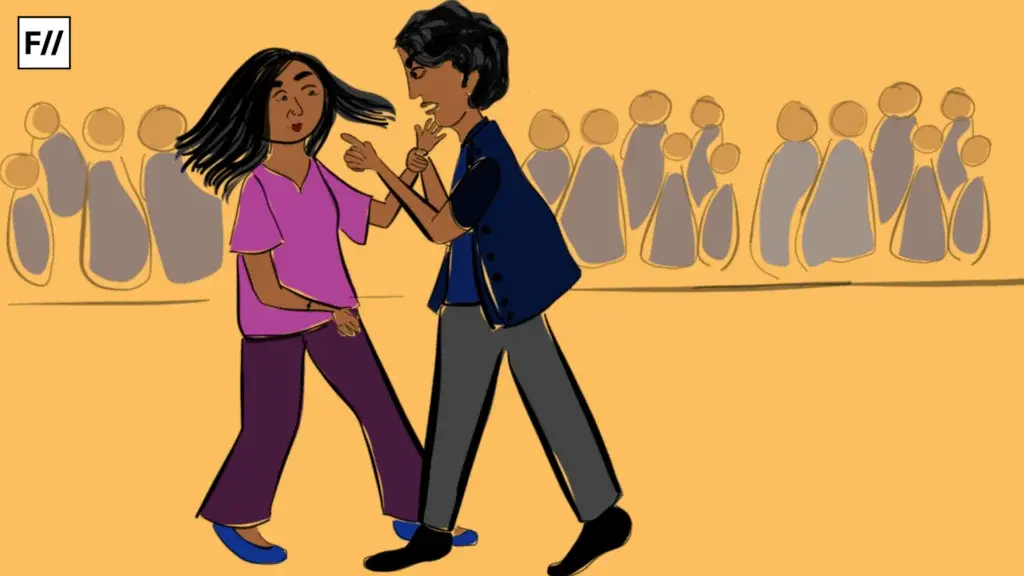Trigger Warning: Digital abuse and violence against Muslim women
In another sordid incident of targeting Muslim women, an application named Sulli Deals hosted by GitHub was auctioning Muslim women as ‘deals of the day’. The tagline of the app read ‘community-driven, open-source project’.
When opened, the first page of the app asked the user to click on ‘Find your Sulli deal of the day’. Following that, it randomly displayed pictures of Muslim women sourced from their social media profiles – without their consent – and used them with the intent of harassing and humiliating these women.
Sulli is a derogatory slang term used by Hindutva extremists for Muslim women. Sulli Deals came into notice when these men started sharing their ‘deal of the day’ on social media. After a massive outrage, followed by reporting and flagging of the app, it was taken down. The National Commission for Women and Delhi Commission of Women took notice of the incident, and subsequently an FIR was filed against the app with the Delhi Police.
After a massive outrage, followed by reporting and flagging of the app, it was taken down. The National Commission for Women and Delhi Commission of Women took notice of the incident, and subsequently an FIR was filed against the app with the Delhi Police.
Also read: The Status of India’s Muslim Women Amid State-Directed Violence and COVID-19
Hana Khan, a commercial pilot, who found her name on the list of Sulli deals told the BBC, “I counted 83 names. There could be more. They’d taken my photo from Twitter and it had my user name. This app was running for 20 days and we didn’t even know about it. It sent chills down my spine.”
This is not the first time when Muslim women have been “auctioned” online. In May 2021, an Indian YouTube channel ‘Liberal Doge’ livestreamed Eid pictures of Indian and Pakistani Muslim women, inundated with vulgar, immoderately misogynistic comments. The purpose of the “Eid special” livestream, orchestrated by one Ritesh Jha, was to rate and auction Muslim women. Similarly, after the abrogation of Article 370, Kashmiri women too found themselves at the receiving end of objectification.
While it is true that women face an excruciatingly large amount of online harassment on a day-to-day basis, the practice augments itself in its worst form for women coming from religious minorities and historically marginalised caste identities. The dual jeopardy of being a Muslim, and then a woman, brings Muslim women in a systematically and strategically targeted place where they are openly sexualised, fetishised, harassed and abused for their Muslim identity.
This particular incident should not be viewed in isolation. It is rooted in a wider extremist agenda of using sexual violence against Muslim women for controlling their religious identity and spreading Islamophobia. Those women who were listed in the Sulli Deals app were mostly established, assertive and educated Muslim women who are students, activists, journalists, researchers and artists. This sort of online abuse was an attempt at seizing the already limited space they have access to; it was meant to demean and intimidate them, as is the culture in hypermasculine societies.
Author and former spokesperson of Amnesty in India, Nazia Erum told the BBC that there were only a few Muslim women on social media and those that were, were “hunted and haunted.” Erum further added, “This targeted and planned attack is an attempt to take away the mic from the educated Muslim women who express their opinion and speak out against Islamophobia. It’s an attempt to silence them, to shame them, to take away the space they occupy.”
In a communally polarised country like India, categorising the ‘Sulli Deals’ incident as solely an issue of gender-based violence would be misleading. It is an example of misogyny interspersed with Islamophobia. The limits imposed on Muslim women by the cultural, social, economic and political systems extend to their agency being curtailed. Such sporadic cases of hounding Muslim women for their religious identity and political opinions reinforces these systems of control.
Also read: The Impunity That Internet Trolls Enjoy In The Rape Threats That Rana Ayyub Gets
The individual identity of Muslim women is made to alternatingly move between the saviors and the abusers. A large number of these women do not have the social and economic capital to liberate themselves from this trope. And those who do, are consequentially battling with misogyny and a dehumanising Islamophobic rhetoric wherein they are made a deal of; debasing their identity as a commodity available to be auctioned and bargained.
The cyber harassment of Muslim women in India could translate itself as a forerunner for the physical violence in the real world, hence it is necessary to course correct and take suitable actions against people involved in these incidents. A lack of accountability emboldens them, and leads to an uncontrolled, targeted cyber-bullying of individuals from minority communities.
The mainstream feminists and feminist organisations’ lack of active support to Muslim women during such incidents leads to further stranding of these women. It normalises the violence inflicted on women of minority communities and also becomes a testimony to the selective outrage of apparently progressive organisations.
The mainstream feminists and feminist organisations’ lack of active support to Muslim women during such incidents leads to further stranding of these women. It normalises the violence inflicted on women of minority communities and also becomes a testimony to the selective outrage of apparently progressive organisations. A parallel could be drawn with the responses to the “Bois locker room” incident and the Sulli Deals case: the difference in the reception of both events is palpable. However, Muslim women, just like women from other marginalised communities, have now refused to be the mute spectators of their bodily autonomy being taken away from them. They are determined in their fight for justice, more than ever.
Nuzhat Khan is a student of English Literature at Jamia Millia Islamia. She is from Lucknow. She can be found on Instagram and Twitter.
Featured Image Credit: Aasawari Kulkarni/Feminism In India




